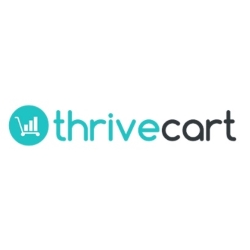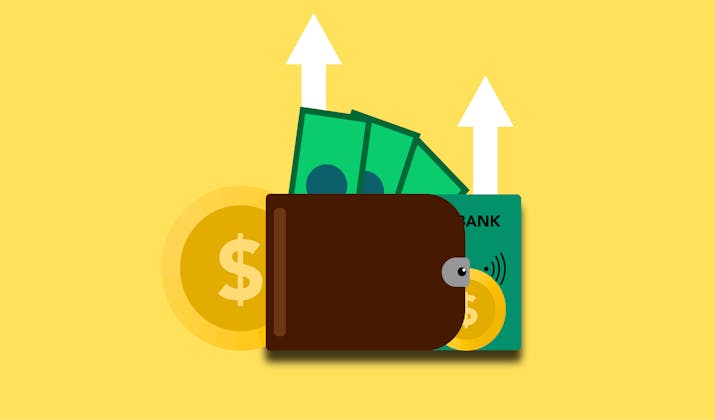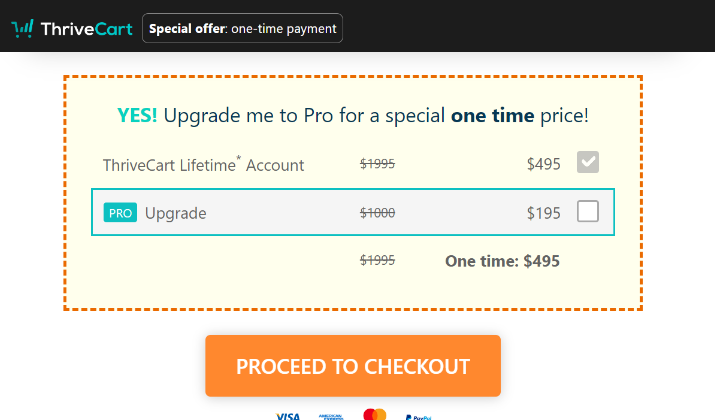ThriveCart is a shopping cart software designed to simplify starting and running an online digital product business.
It offers a user-friendly interface, pre-designed templates and funnels for easy marketing, and sales-boosting features to increase average order volume and grow a business.
ThriveCart is particularly suitable for digital products like eBooks, courses, membership sites, and coaching packages. It provides features such as:
- Simple and user-friendly interface
- Clean interface
- Fast sales funnels
- Upsells and downsells
- Retargeting and subscription saving
- Automatic sales tax calculation
- Intelligent business projections
- Affiliate center
- Custom domain name functionality
- Multi-user and client use permissions
- JV contracts and revenue sharing
Create high-converting cart pages, funnels, affiliate campaigns, courses and more.
If you are considering ThriveCart for your ecommerce business, you might want to know about ThriveCart pricing, structure, plans on offer, payment mode and other things.
In this article, we will discuss all this and more. Stay tuned.
Also Read: ThriveCart Trial – How To Get It?
Does ThriveCart Charge Monthly Fees?
No, ThriveCart does not charge any monthly fees.
The platform operates under a one-time purchase model, with the standard plan priced at $495 and the pro plan at $690.
These one-time payments grant users lifetime access to the service, with no recurring monthly or annual subscription fees.
However, it’s important to note that while ThriveCart itself does not charge transaction fees, the payment processors (like PayPal, Stripe, etc.) that you integrate with ThriveCart may have their own separate transaction fees, typically around 2.9% + $0.30 per transaction.
ThriveCart is thinking to change this pricing model to a monthly subscription in the future, but as of now, the one-time lifetime access is available.
Explore: ThriveCart vs WooCommerce
Understanding ThriveCart Pricing
As stated above, ThriveCart pricing is a one-time payment model that offers lifetime access to its features. The platform does not have a monthly fee.
There are two main plans: the Standard Plan and the Pro Plan.
Create high-converting cart pages, funnels, affiliate campaigns, courses and more.
Standard Plan
Cost – $495 (one-time payment for lifetime access)
Features –
- Drag-and-drop checkout page builder
- Conversion-tested checkout templates
- A/B testing
- Upsells and downsells
- One-click upsells
- Coupons and discounts
- Affiliate marketing
- Customer support
Also Read: ThriveCart vs PayKickstart
Pro Plan
Cost – $690 (one-time payment for lifetime access)
Features –
- All Standard Plan features
- Powerful affiliate center with JV contract & revenue sharing
- Powerful business projections
- Multi-user & client use permission
- Built-in sales tax calculation & reporting
- Built-in dunning & subscription-saver functionality
- Custom domain name functionality
Key Points
- No Monthly Fees: ThriveCart does not charge any recurring monthly fees.
- Lifetime Access: The one-time payment grants lifetime access to the platform’s features.
- No Hidden Fees: There are no additional fees beyond the initial payment.
- Competitive Pricing: ThriveCart’s pricing is competitive compared to other shopping cart platforms that charge monthly fees.
Explore: ThriveCart vs ClickFunnels
Is ThriveCart Pricing Better than its Competitors’?
When compared with SamCart, ThriveCart pricing is significantly different and probably better too.
ThriveCart offers a one-time payment model, with two options:
- ThriveCart Standard: $495 for lifetime access
- ThriveCart Pro: $690 for lifetime access
Create high-converting cart pages, funnels, affiliate campaigns, courses and more.
On the contrary, SamCart operates on a subscription basis with three tiers:
- Launch: $79/month
- Grow: $159/month
- Scale: $319/month
Relatively, SamCart’s pricing is on a higher side. It proves to be a little expensive in the long run, especially for those who need advanced features like affiliate management.
That said, both platforms are great at what they offer.
Explore: ThriveCart vs Thinkific
What are the Benefits of Paying One-time Fees Over Recurring Monthly Fees?
There are a few key benefits to paying one-time fees over recurring monthly fees:
- Lower total cost: With a one-time payment, the total cost is fixed and known upfront. In contrast, recurring monthly fees can add up to a much higher total cost over time.
- More flexibility: One-time payments allow customers to use the product or service on their own schedule without being locked into a subscription. They don’t have to worry about remembering to cancel if they stop using it.
- Easier budgeting: Customers can budget for a one-time expense more easily than recurring monthly fees that can stretch on indefinitely. The upfront cost may be higher but the long-term cost is more predictable.
- Potential for discounts: Businesses sometimes offer discounts for one-time payments to incentivize customers to pay upfront rather than monthly. This can provide additional savings.
That said, recurring revenue from monthly subscriptions can provide more stable and predictable income for businesses over time.
The benefits however depend on the specific product, customer base, and business model. Many companies offer both one-time and recurring options to provide flexibility and choice for customers.
Also Read: ThriveCart vs Stan Store
Create high-converting cart pages, funnels, affiliate campaigns, courses and more.
Conclusion
ThriveCart’s pricing model offers a unique value proposition by providing lifetime access to its features at a one-time cost.
This approach eliminates the need for recurring monthly payments, making it an attractive option for businesses looking for a cost-effective and efficient shopping cart solution.












